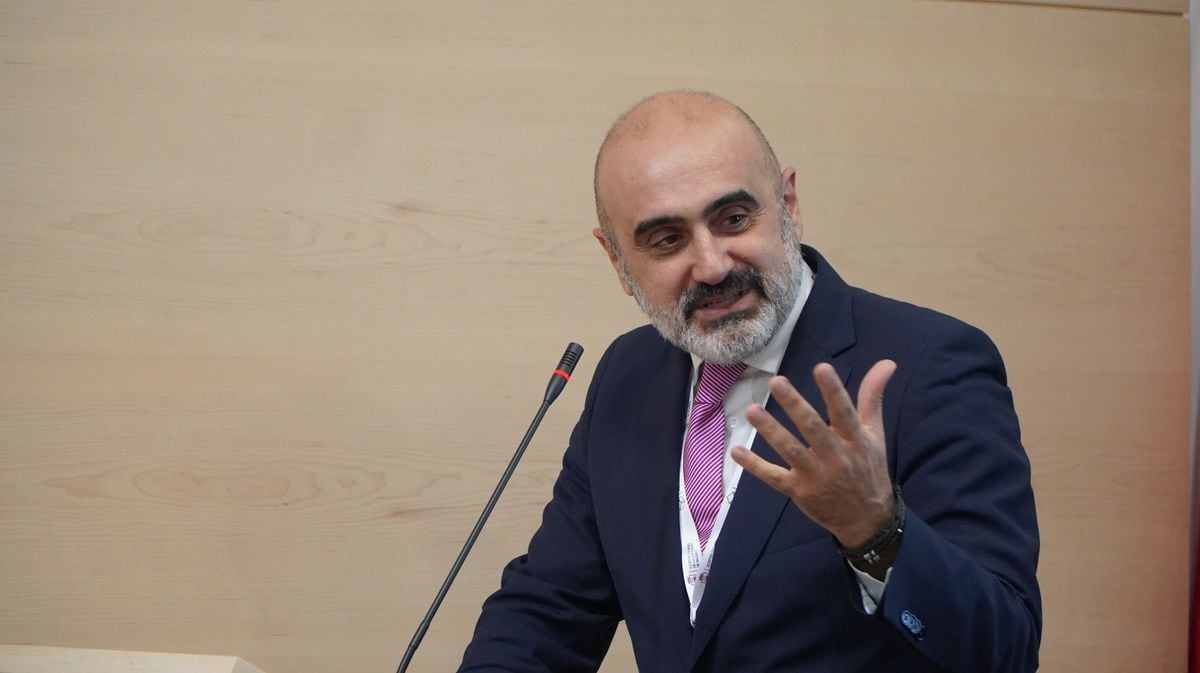Enlarge image
Vaccine from Biontech: The vaccination certificate is intended to help enable mobility within the EU
Photo: Jochen Eckel / imago images / Jochen Eckel
It really sounded a bit like technological overkill: Five blockchains became a running gag on the Internet when SPIEGEL reported at the beginning of March that the German solution for a digital vaccination certificate would come from IBM and the Cologne blockchain company Ubirch.
The two companies had won the Federal Ministry of Health's "secret competition" and Ubirch had declared that it wanted to ensure the integrity of the evidence over no fewer than five blockchains for reasons of redundancy.
(Read more about the goal and the intended functionality of the system here.)
Because Ubirch initially did not provide a reason why the technically complex approach was necessary, the company and the Ministry of Health were exposed to some ridicule on Twitter and the accusation of making the vaccination detection system unnecessarily expensive - although the order was only 2 According to the tender, it had 7 million euros.
Ubirch founder and CEO Stephan Noller wrote to SPIEGEL that he “couldn't really understand” the excitement about the five blockchains and the allegedly resulting costs.
“In fact, this is about cryptographic redundancy, that is, maximum proof of the authenticity of a data package with maximum transparency and verifiability at the same time.
Since we use a very efficient mechanism for this at Ubirch, the additional costs are de facto negligible. "
But now it turns out differently anyway.
Those responsible will not use any blockchain technologies, it is said from those responsible - at least that applies "in the first phase of implementation," as Ubirch announced on Twitter.
The technology is not provided for in the EU requirements for digital vaccination certificates, and there is no need for "central storage of the [vaccination] certificates," which is why the certificates or information on the certificates do not have to be anchored in a blockchain.
It was examined as an option, but a decision was made against it.
Instead, a conventional public key infrastructure process is used, in which the secure exchange of data is ensured using a combination of public and private keys - a tried and tested cryptographic process.
Enable mobility within the EU again
According to representatives of the Ministry of Health, the first digital vaccination certificates could be issued between mid-May and the end of June.
Those responsible do not give a more precise start date, because that depends, among other things, on when the EU will announce the outstanding specifications for the project.
First of all, the vaccination certificate should help to enable and simplify mobility within the EU;
However, there are also contacts to those responsible for similar international solutions such as the umbrella association of airlines (IATA), which target international air traffic with their "Travel Pass".
Given the weight of the EU solution, there are good chances of being able to integrate the European vaccination records there retrospectively.
No recovery certificate for the time being
The handling of information from people who have already contracted Covid-19, who have recovered and are therefore likely to be immune for a certain period of time, has not been clarified.
Initially, there should not be a recovered certificate in the digital vaccination certificate, as there are still too many open scientific questions.
The question of how people who have already been double-vaccinated should subsequently be given their digital certificate has not yet been clarified.
By default, the digital vaccination certificates will in future be created at the second vaccination appointment, in addition to the entry in the yellow vaccination books.
Concerns about the data security of the project, in which a large American company is involved, try to dispel the makers;
accordingly, IBM in the vaccination pass consortium is primarily responsible for the verification app for citizens and the associated test app for operators.
The data processing takes place in a Deutsche Telekom cloud and the data centers of the consortium partner govdigital, a cooperative of public IT service providers.
The Neckarsulm-based IT company Bechtle is to help as a further partner in the nationwide introduction of the requirements for electronic vaccination certificate creation.
How many Corona apps do you need?
There should soon be various Corona apps on the smartphone screens of many users - in addition to the warning app and check-in apps such as Luca, the vaccination certificate app will be available in a few weeks.
As an alternative for all non-smartphone users, medical practices and vaccination centers will offer a machine-readable paper printout with the QR code.
The paper printouts should also help those who, for example, start using a new smartphone.
You can then scan the QR code and thus your certificate into the new device and continue to use it.
But the Federal Ministry of Health has another plan: In order to upgrade the Corona warning app, it wants to integrate the digital vaccination certificate into it as soon as possible. The big advantage: The official app of the federal government is already installed on millions of smartphones, the vaccination certificate would be immediately available on a broad basis. The same applies to the planned check-in function. However, this would probably soften a principle that has so far been considered a dogma around the Corona warning app, namely its extensive waiver of the storage of personal data.








